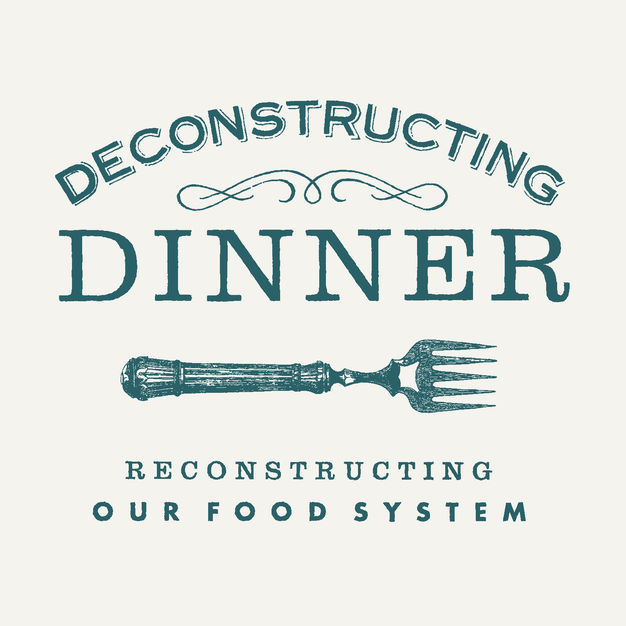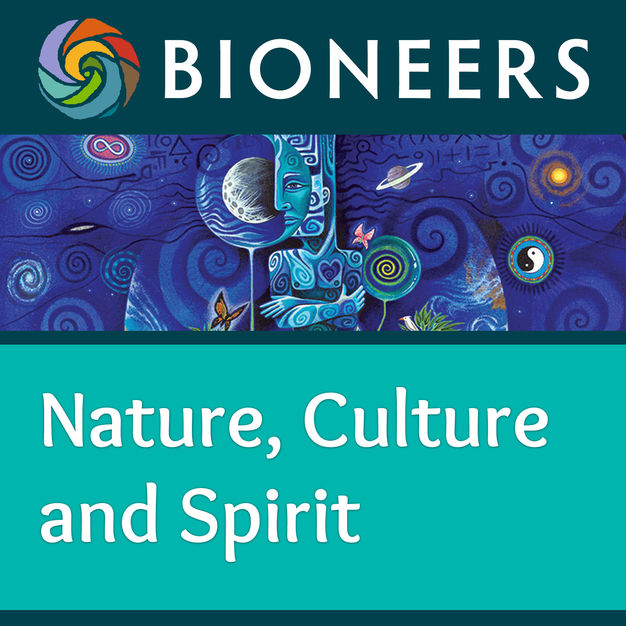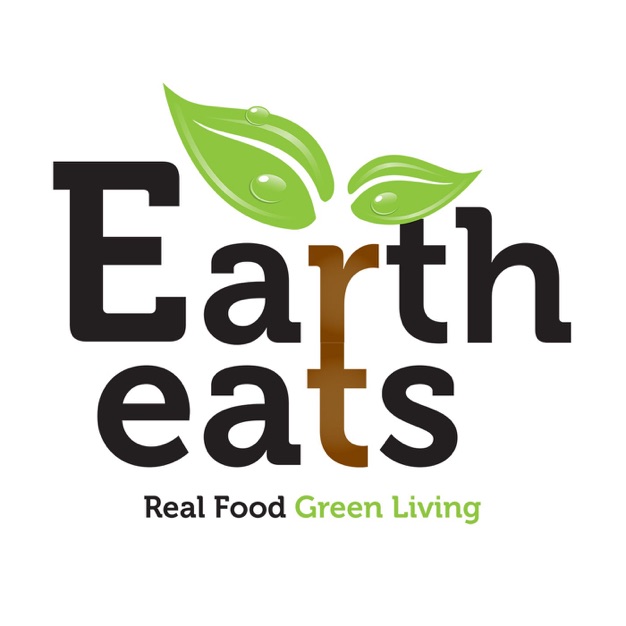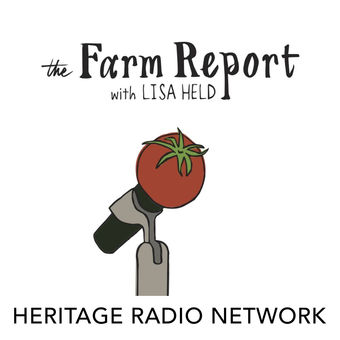
Deconstructing Dinner
Deconstructing Dinner is a podcast/radio show that broadcast between 2006 through 2011 with a brief return of a handful of episodes in 2014. Almost 200 episodes are available on topics ranging from corporate consolidation, animal welfare, urban food production and the local and good food movements. With host Jon Steinman.
- 36 minutes 51 secondsThe Importance of Garlic to Small-Scale Farmers
Across the US and Canada, there is an exciting emergence of a unique type of food festival – a festival for garlic! When looking at a map of where garlic festivals are emerging, it’s clear that garlic knows no geographic boundaries – it’s a food that grows well in most climates across the continent. This popularity of garlic festivals appears to be communicating an important story – a story of our longing to connect and celebrate with one another around food, a story of people wanting to make more flavorful dinners, and a story of a food that has become an incredibly important crop for small-scale farmers.
Features:
Ken Meter, Professor, Crossroads Resource Center (Minneapolis, MN)
Liz Primeau, Author, In Pursuit of Garlic (Mississauga, ON)
Bill Christopher, President, Christopher Ranch (Gilroy, CA)
Bob Baloch, Farmer, The Fresh Veggies (Brampton, ON)
Peter McClusky, Founder, Toronto Garlic Festival (Toronto, ON)
JP Gural, Farmer, Samsara Fields (Waterford, ON)
Ross Breen, Farmer, Stone Soup Farm (Harlowe, ON)
Paul Hoepfner-Homme, Farmer, Victory Garden Vegetables (Cobourg, ON)
13 May 2014, 12:12 am - 23 minutes 15 secondsGenetically Engineered Honey?
Honey – one of the most natural foods. In the supermarket, honey is found labelled as coming from clover, buckwheat, alfalfa or maybe orange blossom. The label might just read ‘honey’ without any indication of its source of nectar. But is the nectar source even important to those of us wishing to become more conscientious eaters? As Deconstructing Dinner has discovered, there is a curiosity surrounding honey – a curiosity, which has rarely, if ever, been spoken…. until now!
It turns out, in Canada, 80% of all the honey produced in the country is from the nectar of canola – yet, nowhere on the grocery store shelves do we ever see honey labelled as “canola honey”. And so the question becomes – just where is all that canola honey ending up?
Features
Vaughn Bryant, Professor, Texas A&M University (College Station, TX)
Brian Campbell, Certified Master Beekeeper, Blessed Bee Farm (Richmond, BC)
Jill Clark, Spokesperson, True Source Honey (Lancaster, PA)
19 March 2014, 5:22 pm - 28 minutes 15 secondsHow Organic is an 'Organic' Egg?
Deconstructing Dinner's Jon Steinman sits down with Mark Kastel - the co-founder of the Cornucopia Institute - a populist farm policy research group based in Wisconsin.
Mark and Jon discuss the changing face of organic food. Using eggs as an example - Mark explains how eaters can exercise a more discriminating awareness when purchasing 'organic' eggs.
Features:
Mark Kastel, Co-Founder, Cornucopia Institute (La Farge, WI)
15 February 2014, 11:01 pm - 40 minutes 42 secondsYear-Round vs. Seasonal Eating
It's not uncommon for most of us eaters to view the system supplying us with food as being separate from us, but on this podcast, one of Canada's most recognized food policy analysts offers his perspectives which suggest otherwise. Instead, the food system has in many ways been designed to satisfy the demands that we make every day to eat the same food, year-round, regardless of season, geography or climate.
It seems that we eaters, have become so accustomed to that fresh tomato slice on our sandwich, that glass of orange juice in the morning, or that salad of fresh greens, that these very demands have shaped the food system, and, subsequently, shaped the world we live in. But are these demands for a perpetual harvest necessary? Could we do just fine or even better by choosing a more seasonal approach to eating?...., and, if so, could this way of eating reconstruct the food system for the better?
Features:
Rod MacRae, Associate Professor, Faculty of Environmental Studies, York University (Toronto, ON)
6 January 2014, 6:19 pm - 27 minutes 15 secondsConventional vs. Organic Wheat
On this all-new podcast, Deconstructing Dinner's Jon Steinman examines some of the key differences between conventional and organically produced wheat.
Features:
Stephen Jones, Director, Washington State University Research Station (Mount Vernon, WA)
Kevin Christenson, Owner, Fairhaven Organic Flour Mill (Burlington, WA)
Sam Lucy, Farmer, Bluebird Grain Farms (Winthrop, WA)
Roy Lawrence, Farmer, Kootenay Grain CSA (Creston, BC)
Scott Mangold, Baker, Breadfarm (Edison, WA)
20 December 2013, 4:13 am - 59 minutes 53 secondsA Farewell... For Now! (incl. Update on Eggs Investigation)
This episode #193 marks the final broadcast of Deconstructing Dinner before we embark on a much-needed break.
Producer & Host Jon Steinman speaks about the need to step away from producing new shows and what future might lie ahead. Jon also shares some reflections on the past 5 years of producing this weekly one-hour radio show and podcast, and offers suggestions to those involved in the responsible food movement - a movement which this show has helped track its evolution and certainly one that this show has in many ways been a part of.
Also on the show - a brief update (regrettably brief!) on our September undercover investigation on a B.C. egg business who had been fraudulently marketing their product as being from their own farm when in fact the property on which the business operated was not a farm at all! It appears the Canadian Food Inspection Agency has vowed silence instead of transparency.
30 November 2010, 8:40 pm - 59 minutes 3 secondsThe Local Grain Revolution XII (Year 3 & Lopez Island Grain Project)
Since March 2008, Deconstructing Dinner has been tracking the evolution of the Kootenay Grain CSA (Community Supported Agriculture) in the interior of British Columbia. The project is Canada's first community supported agriculture project for grain and it's been quite a while since we've checked in with how it's evolved throughout it's third year.
Also on this part 12 of the series, we learn about the many grain projects underway elsewhere in Canada and the United States, all of which have been inspired by this very Local Grain Revolution series! Specifically, we travel to Lopez Island, Washington, where one of those projects has completed its first successful year. In October 2010, Jon Steinman visited the Island to share the story of the Kootenay Grain CSA and learn about the Island's very own.
Guests
Roy Lawrence, farmer, R&S Lawrence Farm (Creston, BC) - Roy is a third-generation farmer. Prior to the CSA, Roy had farmed using conventional methods but the CSA became an opportunity for him to transition to growing naturally.
Joanne Gailius, farmer, Full Circle Farm (Canyon, BC) - Full Circle Farm began in Black Creek, a Mennonite community on Vancouver Island. The Gailius family gardens and raises chickens, turkeys, cows, fruit trees and Norwegian Fjord horses (which are used as labour on the farm). In 1999, the family moved to the Creston Valley where they now farm on 40 acres.
Nancy Crowell, volunteer, KLOI 102.9FM (Lopez Island, WA)
Rhea Miller, assistant director, Lopez Community Land Trust (Lopez Island, WA)
O.J. Lougheed, seed saver, Lopez Community Land Trust's Grain Project(Lopez Island, WA)
Kathryn Thomas, farmer, Horse Drawn Farm(Lopez Island, WA)
20 November 2010, 1:15 am - 56 minutes 20 secondsExploring Ethnobiology IV (The Immaterial Components of Food Sovereignty / Comparing 17th/18th Century Cereal Grain Productivity Among Iroquois and Europeans)
Exploring Ethnobiology is a new series Deconstructing Dinner has been airing since June. Through a scientific lens, ethnobiology examines the relationships between humans and their surrounding plants, animals and ecosystems. With seemingly more and more people becoming interested in developing closer relationships with our surroundings (our food, the earth), there's much we can all learn from ethnobiologists, and in particular, from the symbiotic human-earth relationships that so many peoples around the world have long maintained.
Food sovereignty is also a subject that permeates much of what airs on Deconstructing Dinner, and similarly permeates much of the dialogue among ethnobiologists. At the 2010 International Congress of Ethnobiology held in Tofino, B.C., a group of ethnobiologists gathered to discuss food sovereignty with a focus on the immaterial or intangible components of food sovereignty. In the first half of the episode, we listen in on some of that discussion and in the second half, we listen to Associate Professor at Cornell University's Department of Horticulture, Jane Mt. Pleasant, whose research has involved a fascinating comparative look into 17th/18th century cereal grain farming between the Iroquois people of what is now upstate New York and early European colonizers. Her research paints a telling picture of just how much our western food system is built upon a propensity to maintain the status quo instead of adapting to our surroundings and working in closer relationship with the land on which we grow our food.
Voices
Justin Nolan, assistant professor, Department of Anthropology, J. William Fulbright College of Arts and Sciences, University of Arkansas (Fayetteville, AR) - Justin's research interests are in Ethnobotany, Cherokee and Ozark foodways and medicine, ethnopharmacology, traditional health beliefs, biodiversity mapping, Native American culture, Native American language, cultural preservation
Lewis Williams, Feasting for Change (Tsawout First Nation near Saanichton, B.C.) - The Tsawout First Nation is one of five bands that make up the Saanich Nation and is located north of Victoria, B.C. near the community of Saanichton. Lewis is involved in Feasting for Change - a project that looks to preserve traditional indigenous foodways on Vancouver Island.
Nancy Turner, distinguished professor, School of Environmental Studies, University of Victoria (Victoria, BC) - Born in Berkeley, California, Nancy moved to Victoria at the age of 5 and she lives there today as a Distinguished Professor in the School of Environmental Studies at the University of Victoria. She earned a PhD in Ethnobotany in 1974 from the University of British Columbia when she studied three contemporary indigenous groups of the Pacific Northwest (the Haida, Bella Coola and Lillooet). Nancy's major research has demonstrated the role of plant resources in past and present aboriginal cultures and languages as being an integral component of traditional knowledge systems. Nancy has also played an important role in helping demonstrate how traditional management of plant resources has shaped the landscapes and habitats of western Canada. In 1999 Nancy received the Order of British Columbia and in 2009 received the Order of Canada. She's authored numerous books including, among others, Food Plants of Coastal First Peoples, Food Plants of Interior First Peoples, Plants of Haida Gwaii and The Earth's Blanket - Traditional Teachings for Sustainable Living.
Linda Different Cloud, ethnobotanist / restoration ecologist, Sitting Bull College (Standing Rock Lakota Nation, ND/SD) - Linda is an ethnobotanist and restoration ecologist of the Standing Rock Lakota Nation in what is now North and South Dakota.
Jane Mt. Pleasant, associate professor, Department of Horticulture, Cornell University (Ithaca, NY) - In addition to serving as an associate professor in the Department of Horticulture, Jane is also director of the American Indian Program at Cornell University, with research and teaching responsibilities in both units. Her research focuses on indigenous cropping systems and plants and human well being. She lectures frequently on indigenous agriculture and its links to contemporary agricultural sustainability, and am considered a national expert in Iroquois agriculture.
3 November 2010, 10:03 pm - 57 minutes 57 secondsTED Talks on Food w/Jamie Oliver, Carolyn Steel & Christien Meindertsma
TED has become an incredibly popular series of conferences featuring inspiring speakers from around the world. TED is a small non-profit devoted to what they call - "Ideas Worth Spreading." Starting out in 1984 as a conference bringing together people from three worlds: Technology, Entertainment & Design, TED has since broadened its scope to include two annual conferences in California, a global conference in the UK and many on-line resources where more than 700 TEDTalks are now available. TED believes in the power of ideas to change attitudes, lives and ultimately, the world.
With a number of the talks delivered at their annual conferences involving food, on this episode, we hear three of those talks including one delivered by well-known television personality Jamie Oliver who speaks passionately about teaching children about food. We hear architect and author Carolyn Steel speaking about the history of how cities fed themselves and we hear author/artist Christien Meindertsma speak about the astonishing afterlife of the ordinay pig, parts of which make their way into at least 185 non-pork products!
Voices
Jamie Oliver, chef/author, JamieOliver.com (London/Essex, UK) - Jamie Oliver has been drawn to the kitchen since he was a child working in his father's pub-restaurant. As the host of the BBC2 television show Naked Chef launched in the late 90s, Jamie Oliver has built a worldwide network of TV shows, books, cookware and magazines, all based on a formula of simple food. Today, Jamie's focus has been on bringing attention to the changes he believes are needed to the diets of Brits and Americans and has launched campaigns such as Jamie's School Dinner, Ministry of Food and Food Revolution USA.
Carolyn Steel, architect/author, Hungry City - (London, UK) Carolyn uses food as a medium to read cities and understand how they work. In her book Hungry City, she traces and puts into historical context food's journey from land to urban table and thence to sewer.
Christien Meindertsma, author/artist, PIG 05049 (Rotterdam, Netherlands) - Christien is a dutch artist who explores raw materials in thoughtful ways, making simple books and products to better showcase once-hidden processes. Her second book, titled PIG 05049, documents the astounding array of products that different parts of a pig named 05049 could support -- revealing the lines that link raw materials with producers, products and consumers that have become so invisible in an increasingly globalized world. PIG 05049 was acquired by New York's Museum of Modern Art this past winter.
14 October 2010, 11:13 pm - 57 minutes 36 secondsProduce to the People
Deconstructing Dinner has long been exploring the many ways through which farmers, businesses, organizations and communities are accessing food using new and innovative models. On today's broadcast we hear more of those examples shared as part of the March 2010 panel - Produce to the People, hosted by the San Francisco based CUESA.
The Produce to the People panel examined a few inspiring models for getting fresh, local food to residents in the San Francisco Bay area of California and featured Grayson James of Petaluma Bounty, Melanine Cheng of FarmsReach and Christine Cherdboonmuang of the Oakland Farms-to-Schools Network and Oakland FRESH School Produce Markets. Moderating the panel was Michael Dimock of Roots of Change.
And closing out the broadcast - a new episode from Bucky Buckaw and his Backyard Chicken broadcast. Bucky discusses the pros and cons of eating raw eggs and provides suggestions on the safest source of those eggs to reduce exposure to the risks of salmonella.
Voices
Grayson James, executive director, Petaluma Bounty (Petaluma, CA) - Petaluma Bounty is a non-profit organization formed in 2006. The organization works to create a sustainable Petaluma food system with healthy fresh food for everyone by helping residents to grow their own healthy food, redistributing surplus food, and providing affordable fresh food to low-income families and seniors.
Melanie Cheng, founder, FarmsReach (San Francisco, CA) - FarmsReach is an online farm food marketplace focusing on the San Francisco Bay area that connects farmers to business buyers. Their mission is to help businesses source fresher and healthier foods and put better food on more plates while supporting healthy farms.
Christine Cherdboonmuang, coordinator, Oakland Farms-to-Schools Network (Oakland, CA) - The Oakland Fresh School Produce Markets is a program of the Oakland Unified School District Nutrition Services and the East Bay Asian Youth Center. The markets are set up to sell fresh, mostly locally grown and pesticide-free fruits, vegetables, eggs, nuts, honey and other foods at public schools. The produce is purchased from local family farms and distributors, and sold by parents and students during after-school hours every week at each school site. The markets, which operate at 12 schools are open to parents, students, staff and community residents. Their goal is to open 25 markets by 2012.
Michael Dimock, president, Roots of Change (San Francisco, CA) - Roots of Change is a collaboration of community, nonprofit, philanthropic, government, and business organizations that seeks to accelerate the transition to more sustainable food systems in California.
Bucky Buckaw - host, Bucky Buckaw's Backyard Chicken Broadcast (New York, NY) - Bucky Buckaw gives advice on raising backyard chickens as just one example of how a locally based economy can work. Through this segment, he informs listeners about the downside of factory farming and what kinds of toxic chemicals you can expect to find in the resultant livestock. He promotes organic gardening and composting, and supporting local farmers.
5 October 2010, 2:31 pm - 56 minutes 35 secondsPackaged Foods Exposed V (Unilever 3 Years Later) / Unequal Harvest
Packaged Foods Exposed V Deconstructing Dinner revisits with our popular series - Packaged Foods Exposed. Launched in 2006, the series examines the largest manufacturers of processed foods in the country and takes an often overlooked and critical perspective of these powerful companies.
When Deconstructing Dinner last aired this series, we featured a two-part exposé of Unilever. With three years having now transpired since those episodes, it appears that the company is in much need of some more deconstructing! Needing particular attention are Unilever's questionable marketing strategies. Following our research that has gone into this episode, four complaints were filed with the Canadian Food Inspection Agency. Deconstructing Dinner now awaits their response.
Unequal Harvest Deconstructing Dinner visits with the excellent theatrical performance, Unequal Harvest - a series of monologues written by Winnipeg's Geoff Hughes. Unequal Harvest examines some of the root causes of hunger and food injustice taking place around the world.
Guests
Nicole Shaw, publisher/editor Synergy Magazine (Lantzville, BC) - Nicole Shaw launched Synergy Magazine in March of 2004 after receiving much encouragement and support from members of the community. Nicole's background includes ten years in the computer industry, four years of freelance graphic design, ad layout with the Link Newspaper, four years of PR work and much interest in personal growth and energy healing work. Nicole is the co-host of Heart and Mind: Tools for Change - a radio talk show on CHLY Nanaimo. She and partner Dirk Becker farm organic vegetables.
Kami Desilets & Brent Hirose, actors Unequal Harvest (Winnipeg, MB) - Winnipeg playwright Geoff Hughes has brought food injustice to the stage. In 2008, three non-profit organizations; The Canadian Foodgrains Bank, the Manitoba Food Charter and Winnipeg Harvest resolved to draw attention to the Global Food Crisis by commissioning Geoff to write and direct the original work Unequal Harvest. Debuting in Winnipeg on World Food Day in 2008, the play continues to be performed across Canada including its latest stop at the 2010 Victoria Fringe Festival.
21 September 2010, 8:13 am - More Episodes? Get the App
Your feedback is valuable to us. Should you encounter any bugs, glitches, lack of functionality or other problems, please email us on [email protected] or join Moon.FM Telegram Group where you can talk directly to the dev team who are happy to answer any queries.
 Bioneers: Ecological Medicine
Bioneers: Ecological Medicine
 Bioneers: Nature, Culture and Spirit
Bioneers: Nature, Culture and Spirit
 Bioneers: Protecting and Restoring Nature
Bioneers: Protecting and Restoring Nature
 Earth Eats: Real Food, Green Living
Earth Eats: Real Food, Green Living
 The Farm Report
The Farm Report
 Permaculture Central
Permaculture Central